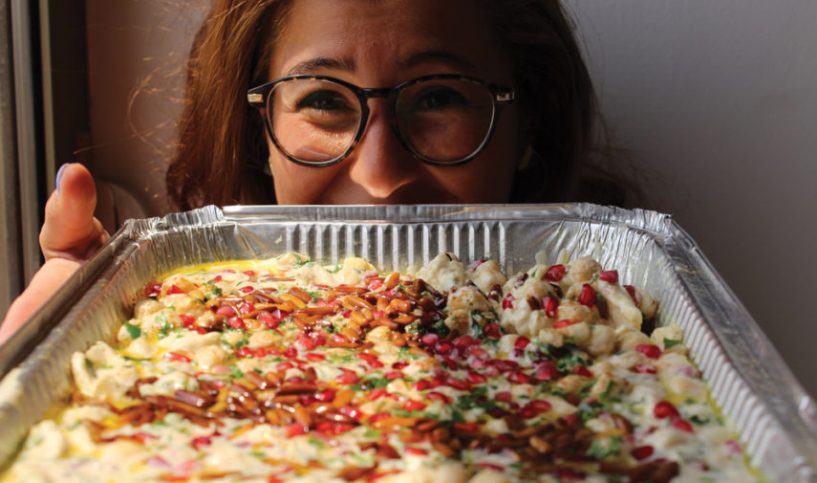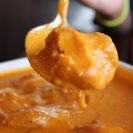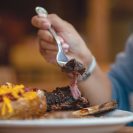What makes a good fatteh? If you’ve been following us for a while, you’ll know that we at bazaar are completely obsessed. We stem from households that pride themselves in their fatteh making – Palestinean, Lebanese, Egyptian… fatteh is a welcome staple in all of our households.
So when we heard that Nour AlKawass – a fellow creative whom we know and love dearly for all her contributions and vibrant spirit – was introducing her Syrian style fatteh under the name Fattet Baba to the community, we had two thoughts: “I’ve never had Syrian fatteh!” and “A fatteh recipe passed on from generations?” All in all, sign us up!
We agreed to have our fatteh in the company of the lovely maker of this masterpiece. Am I giving too much away already? Well, that’s only because this dish was so good that it deserves all orchestras playing high praise to its deliciousness and decadence – but I digress.
Nour arrives at our offices at a quaint 10:30 on a Wednesday morning to join us for a fatteh brunch. She greets us good naturedly as she waltzes into our office warmly, holding a huge platter of fatteh in an aluminum pan. I can barely contain my excitement upon picturing what’s inside, but I know better, being a skilled and responsible food writer! Swatting away the team that shares my enthusiasm and intrigue, I firmly say, “pictures first, food later.”
We convene upstairs to snap some photos and chat about Nour’s journey with Fattet Baba – because with a name like that, we know there must be a story! “My father, who I’m very close to, was always known for his Syrian-style fatteh recipe. Two years go, we were in an AUK market-style event called ‘I Need My Space’, and it was just a hobby. We’ve reintroduced it this year after some time off, during the last days of Ramadan. We held a suhoor, and it was a hit!”
Indeed, it was, because we kept hearing about this fatteh from all over the creative community. Soon after the suhoor, Nour hosted a brunch at ArtSpace, where the fatteh’s appearance was once again, the talk of the town. “During that brunch, I also sent my dad home because he was tired. He’d been doing everything in the past events, but by that point, I knew what I was doing! So that’s what Fattet Baba is, essentially. My dad’s recipe and guidance, but I’m the one doing the cooking now,” she says with a proud smile.
So, does Nour’s rendition of her father’s famous fatteh make the cut? As you may guess due to the overzealous spoiler a couple of paragraphs above, smitten doesn’t even begin to express the feelings of indulgent joy we felt upon taking a few bites of fatteh. When revealed, the fatteh appeared similar to what my Palestinian upbringing was used to, laden with ripe chickpea and topped with pine nuts, parsley and pomegranate for good measure of color. But that bite – this is something different. An overwhelming taste of ghee exploded onto my tongue and I was in love. “OH MY GOD!” was the first thing that came out of my mouth in a slightly uncouth matter, between bites of possibly the best fatteh I’ve ever had in my life (I sincerely hope that my mother isn’t reading this.)
Nour sits perched on the table with a satisfied grin on her face. She knows exactly what this fatteh is doing to us, and as we each help ourselves to yet a second bowl, for the first time in Eats In history, she knows she’s done her father proud.
“Fattet Baba is a passion project, meant to inspire kids to be closer – no, no thank you, I don’t want a bowl. Sa7tein! Enjoy!” She says, as I interrupt her thought, insisting for her to sample the magic that she’s brought into our office. “Our parents have all these great traditions and if we don’t carry them on, who will?”
I agree wholeheartedly – especially if those traditions taste as good as Mr. AlKawass’ fatteh.
Editor’s Note: A third serving of fatteh happened at the time of writing of this article.
Fattet Baba can be ordered via Instagram @fattetbaba. You also might find the pop-up in markets and events as the season approaches! Follow them on Instagram for the latest updates!











